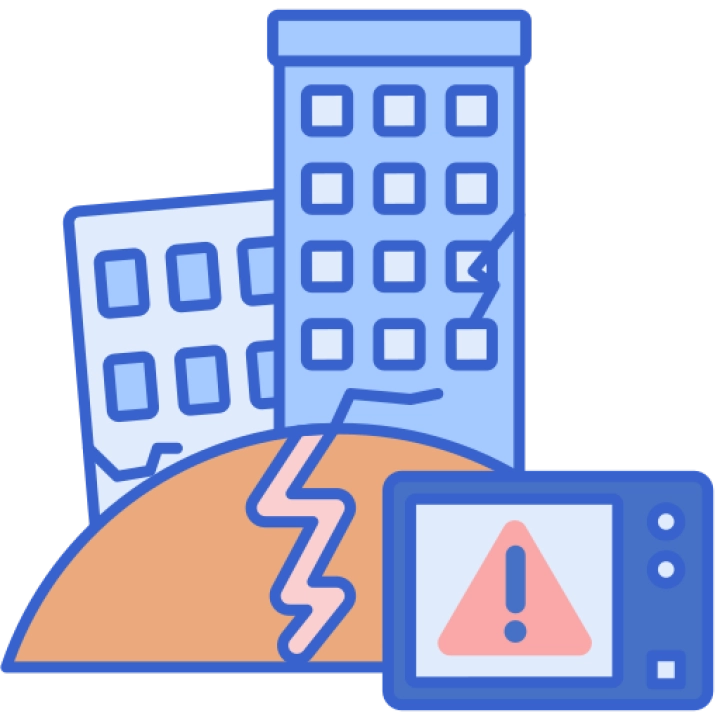College: Vocational School
This major provides a comprehensive understanding of the principles and practices of emergency and disaster management, with a focus on preparedness, response, recovery, and mitigation. Students will explore key areas such as risk assessment, crisis communications, disaster planning, and humanitarian aid. The program emphasizes leadership, problem-solving, and the use of technology to prepare students for careers in emergency services, government agencies, non-profit organizations, and international organizations.
Learning Objectives:
- Understand the fundamentals of emergency and disaster management and their role in public safety.
- Develop skills in risk assessment, disaster planning, and resource allocation.
- Learn effective communication and coordination techniques in crises.
- Explore strategies for disaster response, recovery, and community resilience.
- Understand the impact of climate change, technology, and globalization on disaster management.
- Analyze challenges and opportunities in humanitarian aid and international disaster response.
- Develop leadership and teamwork skills to manage complex emergencies.
Main Curriculum:
- Introduction to Emergency and Disaster Management - An overview of disaster management, its history, and significance in public safety.
- Risk Assessment and Analysis - Principles of identifying, assessing, and mitigating risks. Techniques for analyzing natural and man-made risks.
- Disaster Preparedness and Planning - The basics of developing disaster preparedness plans and protocols. Techniques for conducting drills and simulations.
- Crisis Communication and Public Information - Effective communication strategies during emergencies. Techniques for managing media relations and public information.
- Disaster Response and Operations - Principles of coordinating emergency response efforts. Techniques for managing resources and personnel during disasters.
- Recovery and Community Resilience - Study of post-disaster recovery processes and long-term rebuilding. Techniques for enhancing community resilience and supporting mental health.
- Humanitarian Aid and International Disaster Response - Exploration of global humanitarian principles and practices. Techniques for managing international disaster relief efforts.
- Technology and Innovation in Disaster Management - Use of GIS, drones, and data analytics in disaster management. Techniques for leveraging technology to improve response and recovery.
- Leadership and Ethics in Emergency Management - Principles of ethical decision-making and leadership in crises. Techniques for managing teams and maintaining professionalism under pressure.
- Capstone Project - A real-world disaster management project to apply learned skills. Techniques for presenting a comprehensive disaster management plan.
Assessment Methods:
- Case studies and presentations on disaster management challenges.
- Written assignments on risk assessment, crisis communications, and recovery.
- Group projects and disaster simulation exercises.
- Participation in internships or field work with emergency management organizations.
Recommended Textbooks:
- "Introduction to Emergency Management" by George Haddow, Jane Bullock, and Damon P. Coppola.
- "Disaster Policy and Politics: Emergency Management and Homeland Security" by Richard Sylves.
- "Crisis and Emergency Management: Theory and Practice" by Ali Farazmand.
- "Disaster Resilience: An Integrated Approach" by Douglas Paton and David Johnston.
Prerequisites:
No prior experience is required, but an interest in public safety and crisis management is recommended. Suitable for students in public administration, environmental sciences, and related fields.
Duration of the Major:
Typically 3 to 4 years, including internships, field work, and capstone projects.
Certification:
Graduates may receive a degree in Emergency and Disaster Management or a related field, depending on the program and institution.
Target Audience:
Aspiring emergency managers, disaster response coordinators, and professionals seeking leadership and innovation in emergency and disaster management.
This major equips students with the knowledge, skills, and leadership abilities needed to effectively manage emergencies and disasters, ensuring the safety and resilience of communities and organizations.


